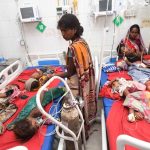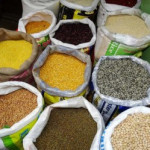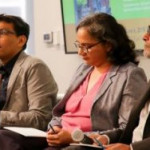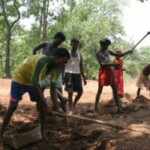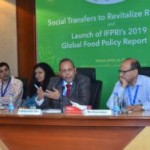Muzaffarpur is emblematic of a hot spot for undernutrition in India. With one in two children stunted, Muzaffarpur lags India’s average by ten percentage points. One in two women is anaemic and one in three is underweight. Although most infants are breastfed and exclusive breastfeeding is high, other aspects of infant diets are abysmal and childhood illness is high. Other social determinants of malnutrition – early marriage, poverty, open defecation and more – offer a case study in what one could call a “perfect storm” of risk factors. Source: IFPRI South Asia Office
Don’t miss the Bimstec bus
The swearing-in of the Modi government for its second term had a distinct guests list comprising leaders from Bay of Bengal Initiative for Multi-Sectoral Technical and Economic Cooperation (BIMSTEC). BIMSTEC, which comprises Bangladesh, Bhutan, India, Myanmar, Nepal, Sri Lanka, and Thailand, is a bridge between South Asia and Southeast Asia. Looking beyond SAARC and dealing with BIMSTEC has been a cornerstone of India’s policy shift. Source: IFPRI South Asia Office
Book launch: Transforming food systems for a rising India
Despite broad economic progress, India continues to face persistent food insecurity, malnutrition, and high levels of stunting. This paradox is at the center of a new book by researchers at the Tata-Cornell Institute for Agriculture andNutrition, Transforming Food Systems for a Rising India, which brings together the latest data and evidence to map out the currents state of Indian food systems. The book offers important insights to both development practitioners and researchers working in India and other developing countries. On June 6, the four co-authors launched the book at IFPRI, outlining what it will take to achieve a nutrition-secure future for India. Source: IFPRI South Asia Office
Study: India’s National Rural Employment Guarantee Scheme has positive impact on participants’ welfare
Evegeniya Anisimova With a budget of $7.47 billion in 2017-18, India’s National Rural Employment Guarantee Scheme (NREGS) is one of the largest programs of its kind globally. The program guarantees employment for up to 100 days per year for each rural household, with wages equal for men and women. Thus, it not only serves as a form of [Read More...] Source: IFPRI South Asia Office
2019 Global Food Policy Report New Delhi launch: Emerging issues for India’s rural development
Smita Aggarwal Agrarian distress, farm waivers, and agricultural sops dominated the political and policy environment ahead of India’s general elections. Amid the hustle and bustle of the world’s largest democracy going to polls, the IFPRI launched its 2019 Global Food Policy Report (GFPR) at the epicenter of the country’s policymaking, New Delhi, at a day-long policy seminar [Read More...] Source: IFPRI South Asia Office
- « Previous Page
- 1
- …
- 4
- 5
- 6
- 7
- 8
- …
- 10
- Next Page »
